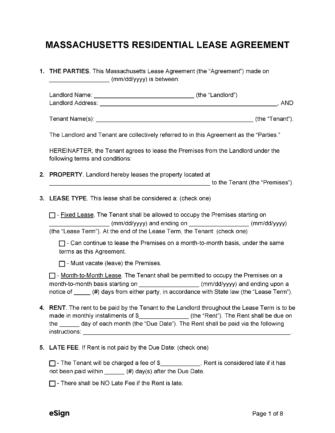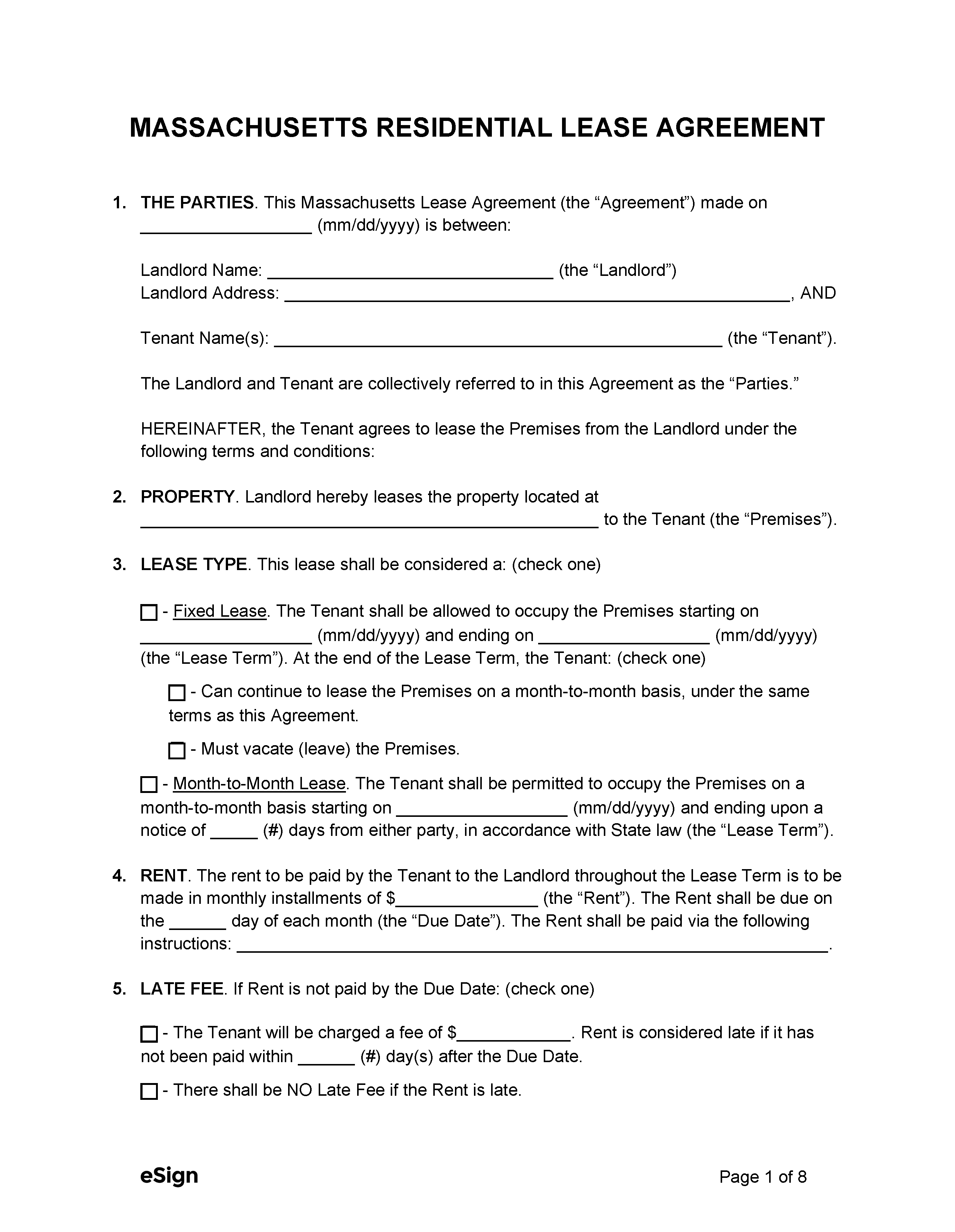
A Massachusetts lease agreement is a document that spells out the terms and conditions of renting a landlord’s real estate. The contract covers the length of the lease term, the rent amount, the rights and responsibilities of the parties, and other important provisions. Both parties must comply with the rules and obligations of the lease as well as any applicable landlord-tenant laws.
A Massachusetts lease agreement is a document that spells out the terms and conditions of renting a landlord’s real estate. The contract covers the length of the lease term, the rent amount, the rights and responsibilities of the parties, and other important provisions. Both parties must comply with the rules and obligations of the lease as well as any applicable landlord-tenant laws.
PDF Download
A Massachusetts lease agreement is a document that spells out the terms and conditions of renting a landlord’s real estate. The contract covers the length of the lease term, the rent amount, the rights and responsibilities of the parties, and other important provisions. Both parties must comply with the rules and obligations of the lease as well as any applicable landlord-tenant laws.
2.5 | 2 Ratings Downloads: 1,282
Rental Application – A rental application provides landlords with prospective tenants’ contact information, employment history, and consent to their credit history.
Maximum Amount ($) – The maximum security deposit amount cannot be more than one month’s rent. [6]
Collecting Interest – When holding a security deposit for at least one year, a landlord must make annual interest payments to the tenant in the amount of 5% or whatever lower amount is paid from the bank where the deposit is held. [7]
Returning to Tenant – Security deposits must be returned to tenants within 30 days of the lease termination date. [8]
Itemized List Required? – Yes, if the landlord withholds some of the security deposit for damages, they must provide an itemized list of damages to the tenant within 30 days of the lease termination date. [9]
Separate Bank Account? – Yes, the security deposit held by the landlord must be kept in a separate, interest-bearing account. [10]
General Access – A lease can contain a clause allowing the landlord to enter for inspections, repairs, and showing to prospective tenants, but there is no mention in state law of advance notice that must be given. [11]
Immediate Access – Landlords do not need to give notice to enter in an emergency.
Grace Period – Landlords may not charge a fee for late rent until 30 days have passed since the due date. [12]
Maximum Late Fee ($) – There is no maximum late rent fee outlined in state law.
Bad Check (NSF) Fee – State statutes do not mention fees for rent checks that bounce due to insufficient funds.
Withholding Rent – A tenant may have the right to withhold rent if the landlord has failed to comply with their obligations, as long as the tenant provides notice and time to fix the issue. [13]
Non-Payment of Rent – If rent is not paid by the end of the 30-day grace period has ended, the landlord can send the tenant a 14-day notice to quit to force them to pay within the notice period or face eviction. [14]
Non-Compliance – There is no statutory notice period that landlords must provide to tenants to cure a non-compliance.
Lockouts – Landlords who have forced a tenant out of their rental property unlawfully may be fined, imprisoned, or liable for damages. [16]
Leaving Before the End Date – State statutes don’t mention what happens if a tenant abandons their rental property.
Month-to-Month – Either party may terminate an at-will monthly lease by providing the other with 30 days’ notice or one rent period, whichever is longer. [17]
Unclaimed Property – Any personal property of the tenant left on the rental property once the landlord regains possession after an eviction should be stored at the cost of the tenant and can be sold if not claimed after six months. [18]